Asymptomatic, bored and craving salt, Kyriacos Iacovides describes his stint in isolation after returning from the UK with coronavirus.
I arrived from the UK on January 3, aware that I would be locked up in a hotel for a week as a guest of the Cyprus government before I could go home.
It was inevitable arrivals from the UK would be quarantined, after Boris Johnson declared on December 19 the existence of a new strain of Covid-19, which was 70 per cent more infectious. Travellers from the UK were walking coronavirus timebombs and the island had to be protected.
On the plus side, Cyprus had not banned arrivals from the UK outright, so a week incarcerated in the room of a random hotel, followed by three days of home isolation was not an unreasonable condition for returning to the January warmth and sunshine.
I had my PCR test at the airport, but realised that special treatment was in store as soon as I entered the passport control hall. All passengers arriving from Gatwick were herded by a police officer through a cordoned off area to a single immigration desk.
At the luggage carousel, a serious-looking but friendly policeman was waiting for all the potential carriers of the new strain of Covid-19, and asked us to assemble by a door once we had collected our suitcases. We eventually received our marching orders, ushered outside to a section of the passenger pick-up area that was under police guard.
You could have thought you had arrived in a police state, or were a time traveller suddenly transferred to Ceausescu’s Romania. Four policemen, admittedly of a sunnier disposition than those at Bucharest international airport in the 1980s, kept the passengers within the confined area and ensured nobody entertained the idea of doing a runner. How far anyone would run with a trolley piled with luggage is a question only our security detail could answer.
There was also a National Guard officer in army fatigues present, suggesting that we had arrived not in a police state but one run by the military instead. So much security all for a dozen of mostly elderly passengers, being guarded as if we were extradited international criminals awaiting transfer to Nicosia central prisons.
I had hoped I would be able to pick up my car that I had left at the airport and drive to the hotel, a totally unrealistic thought under the martial law regime of the airport. Still, I asked one of the cops whether I could go to the hotel in my car but was politely told this was out of the question and I would not be charged extra for the parking while I was in isolation. He then accompanied me inside as I wanted to withdraw some cash from the ATM and could not possibly be allowed to go there on my own. It was not that I was a flight risk, as I had left my luggage in the security zone, but I suppose there was a danger I would approach an innocent bystander and cough Covid on him.
Once we boarded the coach and the policeman in charge ensured he had the correct number of passengers we headed to our hotel prison in Ayia Napa. An air of resignation reigned. None of the passengers exchanged a word with their fellow potential Covid carriers, almost as if they were ashamed of being in this predicament, accepting their fate in silence.
An army officer was at the lobby at the aptly named Anonymous hotel to ensure all the passengers made an orderly queue, and kept a safe distance as they collected their room keys and headed upstairs. Army officers are performing police duties, because the force is overstretched policing the Covid restrictions, even though I doubt they have any authority to give orders to ordinary citizens, without martial law having been imposed.
My prison-lite sentence started on Sunday at about 9.30pm in the Anonymous hotel, a mere 100 or so metres from the sea that you could see from the small balcony of the room. I could have done without a bed as long as there was a balcony, where I could freely indulge in my nicotine addiction. I was also low on tobacco, but the following day a hotel worker kindly brought me a supply to see me through the week.
On Monday came the phone call. I had tested positive for Covid-19 and was told that I would be contacted by the ministry of health to announce my fate. It must be a false positive I told the caller, as I had no symptoms. I had a runny nose and was sneezing on the previous day, but these symptoms had disappeared, and I was feeling fine. “You will be called by the ministry,” he said and hung up.
Apart from worrying that my asymptomatic condition could develop into a full-blown case of coronavirus and necessitate a stint in an ICU where I would not be able to smoke, I was more panicky about the prospect of my imprisonment being extended to 15 days – the regulation isolation for positive cases. Never before in my life had I been locked indoors for longer than a few days and now I would be inside for a whole fortnight. If I were an Akelite, I would call myself a political prisoner, a victim of state Covid oppression.
A polite woman from the ministry by the name of Angelo called after a few hours to inform me that I would have to be moved from Anonymous to the modern-day leper colony that is being housed in the Eden Seniors Resort in Tersephanou, in the Larnaca district, where all the positive cases from abroad are kept. An ambulance would be sent later in the afternoon or first thing Tuesday to take me.
I constructively suggested that I could make my own way to Eden in my own car, which could be brought to Ayia Napa for me. I could even go home, where I live on my own, and spare the taxpayer the bill for my hotel stay and the ambulance. Angelo thought it was a good idea, but she would have to check with her superior. She called a little later to inform me that the health protocols had to be followed because people that had been allowed to go home in the past failed to isolate. She wished me a speedy recovery.
It was not really an ambulance that picked me up on Tuesday morning. It was a mini-van, with a perspex sheet separating the front seats from the rest of the vehicle. At least, I didn’t have to feel guilty about taking a real ambulance out of service to get to the Covid colony.
Eden Seniors Resort looked like any other hotel from the outside, located on the outskirts of the village, but once you went inside it was like a space station, all the staff wearing white, hooded space-suits, gloves and visors. The spacemen were extremely friendly, cheerful, chatty and very helpful. Whatever you asked for they were happy to get within seconds. They treated you like a hotel guest rather than the prisoner you felt you were.
The room at Eden is much more spacious than the hotel’s and so is the balcony, which was just as well with 13 days there to look forward to. It was a double room which would normally host two senior citizens, and this was the reason there were two desks, two TVs and a curtain that could be pulled down between the beds. Everyone was free to go for a walk in the corridors or sit there for a change of scenery. We were all infected so there was no fear of catching the virus or giving it to anyone.
My only fear was that the virus would develop into the real McCoy. Although I was completely asymptomatic, I had a few frights, mostly food related. One symptom is complete loss of smell and taste. Every time I ate, I wondered whether I had lost my sense of taste or the food was just bland. I could not even carry out the ‘salt test’ because all we got with every meal was a tiny sachet of salt, that for a heavy user like myself made zero difference to the flavour of the food. Part of me actually almost wanted to experience at least one symptom of the virus just to make my imprisonment worthwhile. I also developed a conspiracy theory – the government had instructed hotels to provide Covid inmates with bland food to convince them that they have at least one symptom and their incarceration was justified. It was all a way of ensuring the obedience and conformity of the guests.
Three days ago, a friend kindly drove down from Nicosia to bring me some tobacco and snacks, but, most importantly, salt. It changed my life. The food suddenly tasted 10 times better and life was worth living again, even in prison-lite. In the end, I realised I can tolerate having my freedom taken away for a week or two, as long as I have an adequate quantity of salt to see me through the ordeal.
I shall be released on Monday.

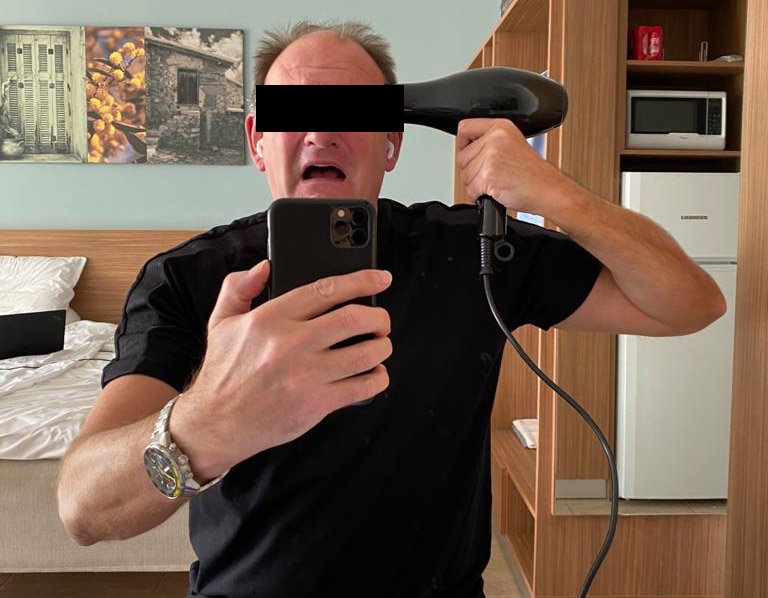
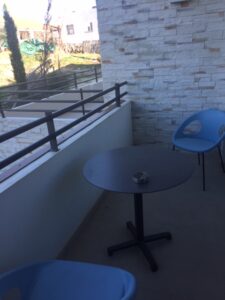
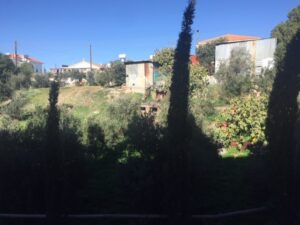
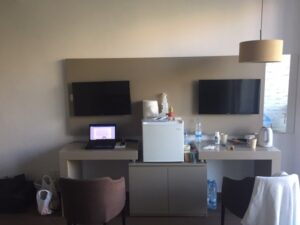
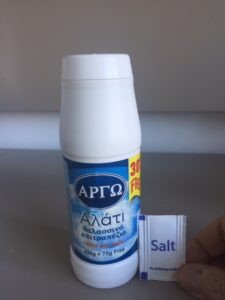
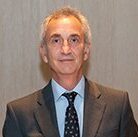




Click here to change your cookie preferences